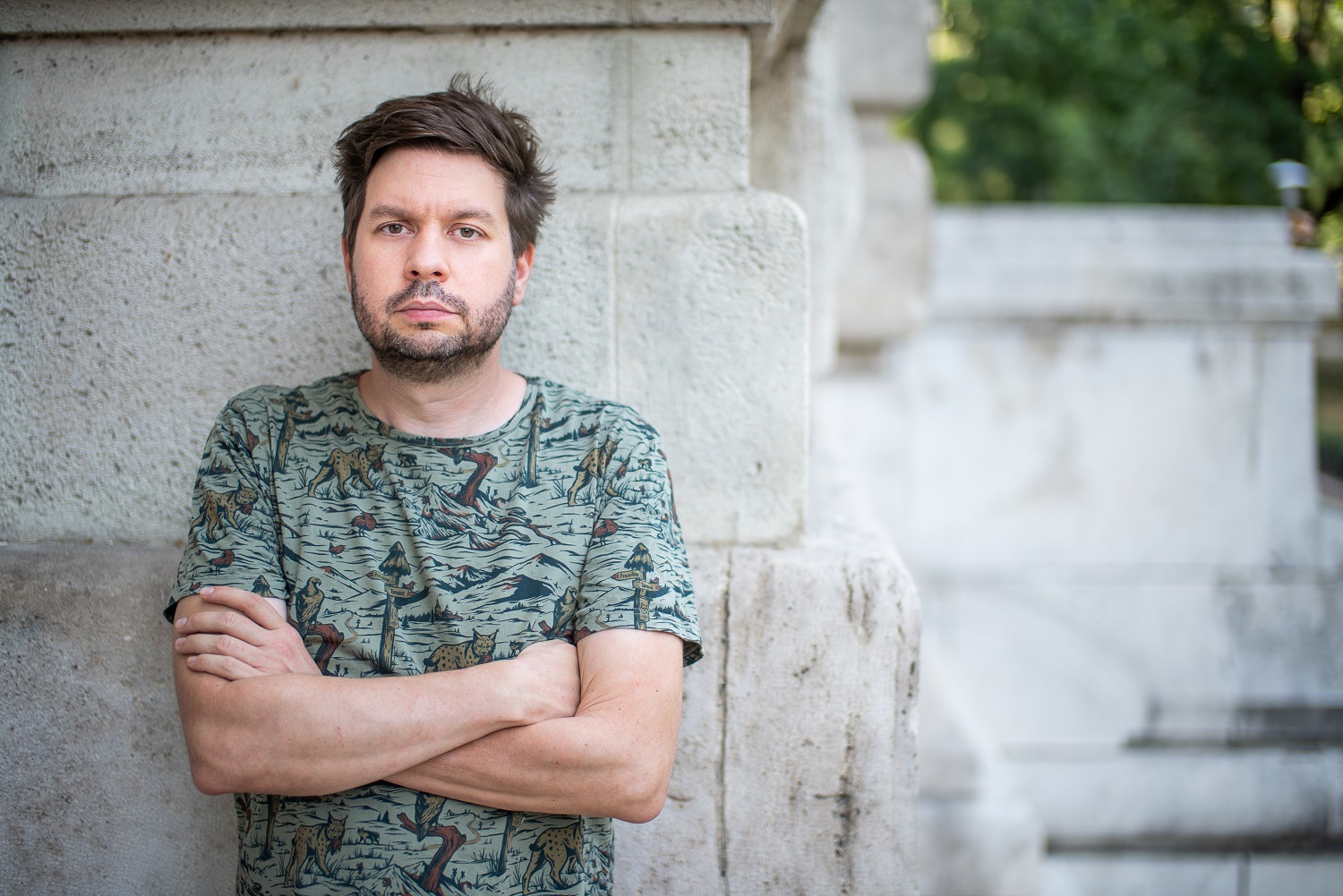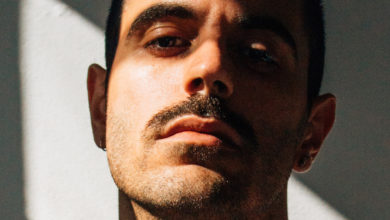We won’t stay silent – Four human rights activists on the future of the homophobic law
The whole Hungarian LGBTQ community, and indeed the whole of Europe, has been shocked by the Hungarian homophobic law, which aims to silence Hungarian LGBTQ people, seriously endangering the mental health of minors, freedom of the press and democracy itself. But the Hungarian LGBTQ community will not stay silent and has been met with support in recent weeks like never before. We spoke to four amazing activists about the past few weeks and the future, which we don’t know much about. What we do know is that our community will speak up.
Following the nationwide support for a children’s book entitled ’A Fairy Tale for Everyone’ (Meseország mindenkié) and the (positively) overwhelming ’Family is Family’ campaign, many people thought that Hungarian society had shown the government that the harassment of the LGBTQ community does not always lead to good results. This is why many people were taken aback by the government’s new, more serious and aggressive attack on the community which did not necessarily come as a surprise to NGOs. According to Zsolt Szekeres, a legal officer and coordinator at the Hungarian Helsinki Committee, it was to be expected that the government would find another enemy to ’protect’ the country from before the 2022 elections. Although Luca Dudits, spokesperson for Háttér Society, also expected another homophobic and transphobic law to be proposed after the silence following the Szájer scandal, she was also surprised by the new developments: ‘We did not expect such a vile and inhuman decree.’
But why was the ruling party, Fidesz-KDNP’s move so predictable? According to Dávid Vig, director of Amnesty Hungary, the government’s attack on the LGBTQ community was built up gradually: it started with statements, but soon moved to the legal level, and then it was clear that there would be no stopping it. ‘In the spring of 2019, we already heard an astonishing homophobic statement by László Kövér, in which he compared adoption by same-sex couples to paedophilia. Governmental homophobia and transphobia, which for a long time has been at the level of public discourse, has become state policy in 2020, at the level of legislation and even laid down in Hungary’s Fundamental Law. From then on, it was only a matter of time before further anti-LGBTQ laws appeared, and we soon arrived at a propaganda law „borrowed” from Putin’s autocracy.’

This law does not serve the needs of society
But while the government is regularly spouting homophobic rhetoric, Hungarian society, the LGBTQ community and even the world is reacting. Although homophobic measures have had a moderate response abroad, Luca says the international reaction has seemingly taken the government by surprise. Thanks to the UEFA Euro 2020 Championships and the Hungarian team’s performance, the propaganda law has reached the world on the back of football, which must have been particularly painful for Viktor Orbán. And the domestic reaction was more heated than ever, but Dávid says the government had to take this into account by gauging Hungarian society, most of which does not necessarily support Fidesz’s way of thinking: ‘According to representative surveys, support for rainbow families and same-sex marriage has increased quite significantly in Hungarian society over the past eight years. Eight out of ten adults believe that this law should be opposed. This gives hope and shows that there is a very strong opposition to the political calculations of the government in Hungarian society.’ That is why we can say that this law does not serve the needs of society. ‘This law is all about politics, and more precisely about the political rationality that in order to retain power, it seems that anything can be done: to incite hatred among Hungarian people and to stigmatise social groups,’ says Dávid.
A weak, but dangerous law
After the initial shock, fear and an unsurprising signature by the President, uncertainty remains. What exactly is this law and what should we do about it? One of the dangers of the law is precisely that it does not always provide answers to these fundamental questions. ‘This law is not a legislative masterpiece, nor is it intended to be,’ says Zsolt, who believes that the language of the legal text is deliberately broad, its concepts are undefined and it fails to meet traditional expectations of clarity about what it is about, who it is addressed to, and what should one do (or not do) to comply with the new norm that governs our lives.
The first homophobic acts were soon reported. Two little girls wearing rainbow straps were threatened by police officers in the street and two doctors in Pécs were beaten up for their sexual orientation. According to Zsolt, these consequences are inherent to such laws and endanger not only the respective community, but society as a whole.

Is self-censorship the goal?
Another direct consequence of the laxity and confusion of the law may be self-censorship. Since no one knows exactly what they can and cannot communicate about, and the Media Authority only decides after the fact – after public notification – what it considers to be propaganda and what is not, Zsolt fears that teachers, psychologists, doctors, journalists and social workers will choose silence, against their best professional judgment, out of sheer fear. And this takes us back to a dark time when there was no need for explicitly regulated state censorship because journalists knew, or at least suspected, what they could and could not write about. And this is a violation of press freedom itself: ‘Freedom of the press is also an important human rights issue: you cannot have freedom of opinion and thought if you cannot have access to reliable, critical information. Press freedom is very important for the development of a viable, genuine democracy,’ says Zsolt.
Young people are the most affected
Although society as a whole is affected, young people are hurt the most from the law’s impact. According to government communications, the law supposedly protects children from alien worldviews while, in reality, it puts them at the greatest risk. ‘Viktor Orbán has repeatedly said that the new law protects children. It is a lie. This law is nothing more than systemic child abuse, which clearly shows that the government does not value children’s lives in order to get closer to its political goals of the moment,’ Zsolt explains.
Although child abuse may seem a harsh expression at first glance, when we look at the effects of the law and the current situation in Hungary, we are really talking about the destruction of future lives. According to research by the Háttér Society in 2019, the vast majority of LGBTQI students (82%) have been verbally bullied in the past year; 13% have been physically bullied at school because of their sexual orientation and 10% because of their gender identity or gender expression. According to Luca, students rarely tell teachers about bullying they have experienced, and unfortunately, even when they do, they are often told not to care about it.
Children’s rights are affected
The law has been loudly protested against by the most influential Hungarian and international children’s rights organisations – the UNICEF-led NGO Coalition for Children’s Rights, the Hintalovon Foundation and the largest European children’s rights organisation, Eurochild – as it clearly violates children’s rights. The essence of children’s rights is that children are not only the objects of protection, but also the holders of all human rights. In Hungary, the UN Convention on the Rights of the Child has been in force since 1991, and the new law is a real trampling on this: ‘All children, including LGBTQ children, have the right not to feel worthless. They have the right to be protected by adults when they are being hurt. They have the right to be properly informed about the diversity of the world and to be able to express their own opinions. And they can only have an opinion if there is good quality, age-appropriate information on relevant issues,’ explains Zsolt.

Bad reputation
Large international protests came not only from civilians, but also from politicians. Many EU countries have taken a stand against the homophobic law, which raises the question of exactly what position Hungary has put itself in in the European Union, where it has not been the most popular member. According to Dávid, the country’s image has certainly deteriorated, but it is not only our reputation that is at stake. ‘This law not only violates the EU’s core values, but also makes the Hungarian government completely unpresentable. It is not just that we could lose EU subsidies and the government is risking thousands of billions, but that dozens of companies will then be considering whether they want to invest in Hungary or perhaps somewhere less homophobic and transphobic. The greatest villainy of the law is that it sacrifices human lives for political gain, but the economic damage caused by the government could be very significant, too.’
Zsolt said that Hungary’s image has not only been damaged in the European Union, but also in the world as a whole. While on average the country is still among the safe countries for the LGBTQ+ community, we have started to slide down the list in recent years. And this negative trend is even more pronounced in the European Union, towards which the state has strong international and legal commitments.
The future of the law
But what is the future of such a law? After the initial shock, and then another after the signing of the law, many people wondered – and with reason – whether and how the law could be repealed. The answer is complex and varied.
Since the law is an amendment to existing laws (the Child Protection Act, the Family Protection Act and the Public Education Act which have now been tainted with these homophobic and transphobic horrors) it can be repealed by a two-thirds vote of MPs, i.e. by another amendment to the law, but that can only happen if the opposition wins the election in 2022 and there are enough enlightened MPs in parliament to vote in favour of this change.
Rebel and speak out
One thing is for sure: there is no quick fix, which means the law will be with us for a while. The question is what we do about it or what we can do against it. According to Zsolt, it simply shouldn’t be enforced. ‘It may seem strange at first, but not all laws are what they seem. The fact that the ruling party voted for it does not necessarily mean that it can be considered as valid law. For a law that is deliberately directed towards an unjust, immoral end, whose mission is not to promote the common good but to tear society apart, cannot be considered a valid law. And if it is not a valid law, we should not obey it. This is the civil disobedience that has been proclaimed in recent days (much to my delight) by several people.’ Zsolt said that everyone now has an especially big responsibility to show that no one needs to be protected from LGBTQ people. Responsible members of society must speak up and fight back against the government. And most importantly, journalists, vloggers and influencers must not give in to censorship, as they only make the government’s job easier.

NGOs are not going to budge
Budapest Pride will continue its work since the representation of LGBTQ people has become more important than ever in the past few weeks. According to Ádám, they have a lot more work to do since the law: there are constant press inquiries, but also a lot of offers of cooperation. But there is also a higher level of scapegoating, making security a more important issue during the Pride parade: ‘This year we are paying even more attention to securing the events and the parade, working closely with the police. We will do our best to ensure that both the programmes and the parade can take place in peaceful and calm circumstances, and that the participants have only positive experiences.’
In the future, in addition to continuing to provide assistance to LGBTQ people and their families, the Háttér Society wants to focus more on teachers and other school staff to fight the law: ‘The Háttér Society coordinates the Diversity Education Task Force. Here we want to focus even more on supporting teachers and other school staff who are open to the issue. Because although teachers cannot in principle be held accountable for addressing LGBTQI issues in their own work, the law also provides a greater platform for denunciations, attacks, fear and self-censorship.’
Amnesty International Hungary, the Hungarian Helsinki Committee and the Háttér Society also pledge to help anyone who gets into trouble because of the law. According to Luca, it is not just a question of taking legal action against someone or dismissing them from their job for inappropriate speech, but also of taking action when they try to influence someone informally. ‘In the latter context, it is particularly important that the matter is properly documented: who said what, when and how. If the aim is to prove a (potential) violation, making an audio recording is allowed – but not the publication of it,’ he says.
The major NGOs are not giving up and are united in urging everyone not to be silent. All four of our speakers are heroes whose example has never been more important to follow. Because it has never been more important to be a hero, to be an activist and, most of all, to be loud. If we are to be heard, we must be louder than ever.
Ádám András Kanicsár
Instagram: @kanicsar
Photos: István Bielik





